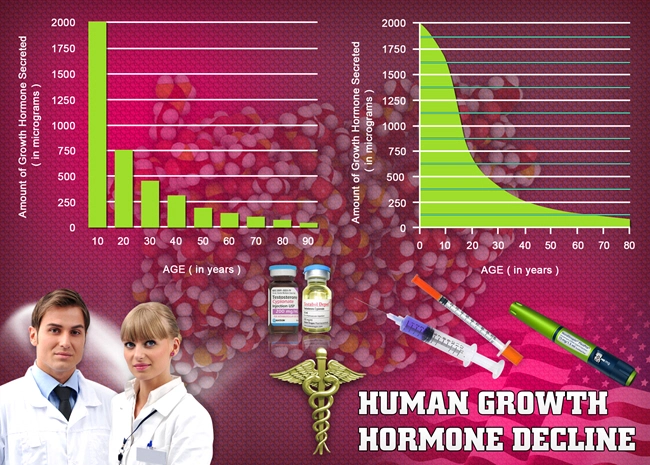
Introduction to Premature Ejaculation
Premature ejaculation (PE) is a common sexual dysfunction among American men, characterized by an inability to delay ejaculation during sexual activity, often leading to distress and dissatisfaction. It is estimated that approximately 30% of men experience this condition at some point in their lives. Understanding PE is crucial not only for enhancing sexual health but also for improving overall well-being and relationship satisfaction.
The Physiology of Ejaculation
Ejaculation involves a complex interplay of neurological and hormonal systems. It begins with sexual arousal, which triggers the emission phase where semen is collected in the urethral bulb. This is followed by the expulsion phase, where rhythmic contractions expel the semen. In men with PE, this process is accelerated due to heightened sensitivity or psychological factors, leading to ejaculation before desired.
Psychological Factors Contributing to PE
Psychological elements play a significant role in PE. Anxiety, stress, and performance pressure can exacerbate the condition. Many men report feeling anxious about sexual performance, which can create a vicious cycle of worry and premature ejaculation. Addressing these psychological aspects often requires a multifaceted approach, including therapy and stress management techniques.
Medical Treatments for Premature Ejaculation
Several medical treatments are available for managing PE. Selective serotonin reuptake inhibitors (SSRIs), such as sertraline and paroxetine, are commonly prescribed off-label to delay ejaculation. Topical anesthetics, like lidocaine or prilocaine, can also be applied to the penis to reduce sensitivity and prolong sexual activity. In some cases, physicians may recommend phosphodiesterase-5 inhibitors, such as sildenafil, to improve overall sexual function.
Behavioral Techniques to Manage PE
Behavioral strategies are essential in the management of PE. The "stop-start" technique involves stimulating the penis until the point of nearing ejaculation, then stopping until the urge subsides, and repeating this process. Similarly, the "squeeze" technique involves applying pressure to the head of the penis to delay ejaculation. These methods require practice and patience but can be effective in improving ejaculatory control.
The Role of Sexual Education and Communication
Sexual education and open communication with partners are vital in managing PE. Educating oneself about sexual health can demystify the process and reduce anxiety. Discussing sexual desires and concerns with a partner can foster a supportive environment, reducing performance pressure and enhancing mutual satisfaction.
Lifestyle Modifications and Their Impact
Lifestyle factors can significantly influence sexual health. Regular exercise, a balanced diet, and adequate sleep can improve overall well-being and sexual function. Reducing alcohol consumption and avoiding smoking are also beneficial, as these substances can impair sexual performance and contribute to PE.
When to Seek Professional Help
Men experiencing persistent issues with PE should consider seeking professional help. A urologist or a sex therapist can provide personalized treatment plans, addressing both the physical and psychological aspects of the condition. Early intervention can prevent the escalation of the problem and improve quality of life.
Conclusion: Empowering Men Through Knowledge and Action
Premature ejaculation is a treatable condition that affects many American men. By understanding the physiological and psychological factors involved, exploring medical and behavioral treatments, and making lifestyle adjustments, men can regain control over their sexual health. Empowerment through knowledge and action is key to overcoming PE and enhancing sexual satisfaction and overall well-being.
Contact Us Today For A Free Consultation
Dear Patient,
Once you have completing the above contact form, for security purposes and confirmation, please confirm your information by calling us.
Please call now: 1-800-380-5339.
Welcoming You To Our Clinic, Professor Tom Henderson.

- Unravelling the Rush: Unmasking the Realm of Premature Ejaculation [Last Updated On: February 25th, 2025] [Originally Added On: February 25th, 2025]
- Confronting the Clock: Understanding the Science of Premature Ejaculation [Last Updated On: February 26th, 2025] [Originally Added On: February 26th, 2025]
- Unveiling the Mystery: The Underlying Causes of Premature Ejaculation [Last Updated On: February 27th, 2025] [Originally Added On: February 27th, 2025]
- Unraveling the Complexity of Performance: The Psychological Underpinnings of Premature Ejaculation [Last Updated On: February 28th, 2025] [Originally Added On: February 28th, 2025]
- Mastering the Art of Long-lasting Intimacy: An In-depth Look at Techniques to Delay Ejaculation [Last Updated On: February 28th, 2025] [Originally Added On: February 28th, 2025]
- Premature Ejaculation: Debunking Myths and Providing Facts for American Men [Last Updated On: March 1st, 2025] [Originally Added On: March 1st, 2025]
- Sorting Through the Shadows: Debunking the Misconceptions About Premature Ejaculation [Last Updated On: March 1st, 2025] [Originally Added On: March 1st, 2025]
- Introduction Into Early Emission Hormonal Disorders [Last Updated On: March 2nd, 2025] [Originally Added On: March 2nd, 2025]
- Comprehensive Overview of Premature Ejaculation: Causes, Diagnosis, and Treatment Options [Last Updated On: March 3rd, 2025] [Originally Added On: March 3rd, 2025]
- Understanding Premature Ejaculation: Impacts and Management Strategies [Last Updated On: March 4th, 2025] [Originally Added On: March 4th, 2025]
- Comprehensive Guide to Understanding and Managing Premature Ejaculation [Last Updated On: March 5th, 2025] [Originally Added On: March 5th, 2025]
- Understanding and Managing Delayed Ejaculation: Psychological and Behavioral Strategies [Last Updated On: March 6th, 2025] [Originally Added On: March 6th, 2025]
- Managing Performance Anxiety in Premature Ejaculation: Strategies for Psychological and Physical Well-being [Last Updated On: March 7th, 2025] [Originally Added On: March 7th, 2025]
- Mastering the Clock: Hormonal Influences on Ejaculatory Control and Premature Ejaculation in American Men [Last Updated On: March 7th, 2025] [Originally Added On: March 7th, 2025]
- Unraveling the Mystery: A Deep Dive into Premature Ejaculation in American Men [Last Updated On: March 7th, 2025] [Originally Added On: March 7th, 2025]
- Comprehensive Guide to Managing Premature Ejaculation for American Men: Causes, Treatment, and Coping [Last Updated On: March 8th, 2025] [Originally Added On: March 8th, 2025]
- Managing Premature Ejaculation: Natural Remedies and Behavioral Techniques for Male Sexual Health [Last Updated On: March 9th, 2025] [Originally Added On: March 9th, 2025]
- Exploring the Dual-Use Potential of Erectile Dysfunction Medications in Treating Premature Ejaculation [Last Updated On: March 12th, 2025] [Originally Added On: March 12th, 2025]
- Mastering Your Heartbeat: Techniques for American Males to Gain Control Over Rapid Heart Rhythms [Last Updated On: March 13th, 2025] [Originally Added On: March 13th, 2025]
- Mindfulness and Mastery: Transforming Premature Ejaculation Through Conscious Control [Last Updated On: March 15th, 2025] [Originally Added On: March 15th, 2025]
- Managing Premature Ejaculation: Communication, Techniques, and Professional Support for American Men [Last Updated On: March 18th, 2025] [Originally Added On: March 18th, 2025]
- Nervous System's Role in Premature Ejaculation: Causes, Treatments, and Future Research [Last Updated On: March 18th, 2025] [Originally Added On: March 18th, 2025]
- Managing Premature Ejaculation: Diet, Exercise, Stress, Sleep, and Communication Strategies for American Males [Last Updated On: March 19th, 2025] [Originally Added On: March 19th, 2025]
- Managing Premature Ejaculation: Fast Forward and Slow Down Approaches for American Men [Last Updated On: March 20th, 2025] [Originally Added On: March 20th, 2025]
- Managing Premature Ejaculation: A Holistic Approach to Sexual Health [Last Updated On: March 20th, 2025] [Originally Added On: March 20th, 2025]
- Managing Premature Ejaculation: Medical, Behavioral, and Lifestyle Approaches for American Males [Last Updated On: March 20th, 2025] [Originally Added On: March 20th, 2025]
- Effective Techniques for Managing Premature Ejaculation in American Males [Last Updated On: March 20th, 2025] [Originally Added On: March 20th, 2025]
- Anxiety's Role in Premature Ejaculation: Insights and Management Strategies for American Men [Last Updated On: March 20th, 2025] [Originally Added On: March 20th, 2025]
- Premature Ejaculation's Social Impact: Psychological, Relational, and Professional Effects on American Men [Last Updated On: March 20th, 2025] [Originally Added On: March 20th, 2025]
- Managing Premature Ejaculation in Casual Relationships: Strategies for American Men [Last Updated On: March 21st, 2025] [Originally Added On: March 21st, 2025]
- Physical Fitness Boosts Sexual Health, Helps Manage Premature Ejaculation in Men [Last Updated On: March 21st, 2025] [Originally Added On: March 21st, 2025]
- Dietary Strategies to Manage Premature Ejaculation in American Men [Last Updated On: March 21st, 2025] [Originally Added On: March 21st, 2025]
- Countdown Challenge: Exercises to Overcome Premature Ejaculation in American Men [Last Updated On: March 21st, 2025] [Originally Added On: March 21st, 2025]
- Premature Ejaculation: Emotional, Financial Impacts and Treatment Options for American Men [Last Updated On: March 22nd, 2025] [Originally Added On: March 22nd, 2025]
- Premature Ejaculation: Causes, Diagnosis, and Effective Treatment Options for American Men [Last Updated On: March 23rd, 2025] [Originally Added On: March 23rd, 2025]
- Sleep's Role in Enhancing Sexual Stamina and Managing Premature Ejaculation in American Males [Last Updated On: March 23rd, 2025] [Originally Added On: March 23rd, 2025]
- Understanding and Managing Premature Ejaculation: A Holistic Approach for American Men [Last Updated On: March 23rd, 2025] [Originally Added On: March 23rd, 2025]
- Breaking the Silence on Premature Ejaculation: Empowering American Men [Last Updated On: March 23rd, 2025] [Originally Added On: March 23rd, 2025]
- Exploring Non-Pharmacological Strategies for Managing Premature Ejaculation in American Men [Last Updated On: March 24th, 2025] [Originally Added On: March 24th, 2025]
- Managing Premature Ejaculation: A Patient's Journey to Control and Confidence [Last Updated On: March 24th, 2025] [Originally Added On: March 24th, 2025]
- Transforming Premature Ejaculation into Deeper Intimacy and Connection [Last Updated On: March 24th, 2025] [Originally Added On: March 24th, 2025]
- Psychological Interventions for Premature Ejaculation in American Men: A Comprehensive Guide [Last Updated On: March 24th, 2025] [Originally Added On: March 24th, 2025]
- Understanding Premature Ejaculation: Biological, Psychological, and Treatment Insights [Last Updated On: March 24th, 2025] [Originally Added On: March 24th, 2025]
- Managing Premature Ejaculation: Understanding and Overcoming Sexual Dysfunction in American Males [Last Updated On: March 24th, 2025] [Originally Added On: March 24th, 2025]
- Overcoming Premature Ejaculation: Success Stories and Strategies for American Men [Last Updated On: March 24th, 2025] [Originally Added On: March 24th, 2025]
- Enhancing Sexual Endurance: Patience and Techniques for Overcoming Premature Ejaculation [Last Updated On: March 24th, 2025] [Originally Added On: March 24th, 2025]
- Managing Premature Ejaculation: Strategies and Solutions for American Men [Last Updated On: March 25th, 2025] [Originally Added On: March 25th, 2025]
- Managing Premature Ejaculation: A Holistic Approach to Enhancing Sexual Endurance [Last Updated On: March 25th, 2025] [Originally Added On: March 25th, 2025]
- Managing Premature Ejaculation: Techniques and Strategies for American Men [Last Updated On: March 25th, 2025] [Originally Added On: March 25th, 2025]
- Tech Advances in Managing Premature Ejaculation: Apps and Digital Tools [Last Updated On: March 25th, 2025] [Originally Added On: March 25th, 2025]
- Foreplay Techniques to Manage Premature Ejaculation in American Males [Last Updated On: March 25th, 2025] [Originally Added On: March 25th, 2025]
- CBT: A Promising Approach to Managing Premature Ejaculation in American Men [Last Updated On: March 26th, 2025] [Originally Added On: March 26th, 2025]
- Biofeedback: A Promising Solution for Premature Ejaculation in American Men [Last Updated On: March 26th, 2025] [Originally Added On: March 26th, 2025]
- Advancements in Managing Premature Ejaculation: New Therapies and Holistic Approaches [Last Updated On: March 26th, 2025] [Originally Added On: March 26th, 2025]
- Medications' Impact on Ejaculatory Speed: Insights for Managing Premature Ejaculation [Last Updated On: March 26th, 2025] [Originally Added On: March 26th, 2025]
- Premature Ejaculation: Global Insights, Treatment Options for American Men [Last Updated On: March 26th, 2025] [Originally Added On: March 26th, 2025]
- Premature Ejaculation: Causes, Impacts, and Management Strategies for American Men [Last Updated On: March 26th, 2025] [Originally Added On: March 26th, 2025]
- Managing Premature Ejaculation Through Enhanced Communication and Trust [Last Updated On: March 27th, 2025] [Originally Added On: March 27th, 2025]
- Stress Reduction Strategies for American Men to Manage Premature Ejaculation [Last Updated On: March 27th, 2025] [Originally Added On: March 27th, 2025]
- Managing Premature Ejaculation: Exercises, Techniques, and Holistic Approaches for American Men [Last Updated On: March 27th, 2025] [Originally Added On: March 27th, 2025]
- Herbal Remedies for Premature Ejaculation: A Holistic Approach for American Males [Last Updated On: March 28th, 2025] [Originally Added On: March 28th, 2025]
- Managing Premature Ejaculation: Self-Help Strategies and Professional Guidance for American Men [Last Updated On: March 28th, 2025] [Originally Added On: March 28th, 2025]
- Couples' Guide to Managing Premature Ejaculation Together [Last Updated On: March 28th, 2025] [Originally Added On: March 28th, 2025]
- Navigating Premature Ejaculation: Treatments and Strategies for American Men [Last Updated On: March 28th, 2025] [Originally Added On: March 28th, 2025]
- Managing Premature Ejaculation: Effective Pause Technique and Complementary Strategies [Last Updated On: March 28th, 2025] [Originally Added On: March 28th, 2025]
- Managing Premature Ejaculation: A Holistic Approach for American Men [Last Updated On: March 28th, 2025] [Originally Added On: March 28th, 2025]
- Understanding and Managing Premature Ejaculation: A Comprehensive Guide [Last Updated On: March 28th, 2025] [Originally Added On: March 28th, 2025]
- Premature Ejaculation: Age-Specific Management Strategies for American Males [Last Updated On: March 28th, 2025] [Originally Added On: March 28th, 2025]
- Expert Insights on Premature Ejaculation: Causes, Diagnosis, and Treatment Strategies [Last Updated On: March 29th, 2025] [Originally Added On: March 29th, 2025]
- Exploring the Link Between ED and PE: Causes, Connections, and Treatments for American Men [Last Updated On: March 30th, 2025] [Originally Added On: March 30th, 2025]
- Managing Premature Ejaculation: Causes, Techniques, and Treatments for American Men [Last Updated On: March 31st, 2025] [Originally Added On: March 31st, 2025]
- Managing Premature Ejaculation: Insights and Strategies for American Men [Last Updated On: March 31st, 2025] [Originally Added On: March 31st, 2025]
- Effective Treatments for Premature Ejaculation: A Comprehensive Guide for American Males [Last Updated On: April 3rd, 2025] [Originally Added On: April 3rd, 2025]
- Controlled Breathing: A Natural Approach to Managing Premature Ejaculation in American Men [Last Updated On: April 3rd, 2025] [Originally Added On: April 3rd, 2025]
- Overcoming Premature Ejaculation: American Men's Journey to Sexual Confidence and Health [Last Updated On: April 4th, 2025] [Originally Added On: April 4th, 2025]
- Prostate Health's Impact on Premature Ejaculation: Causes and Treatments [Last Updated On: April 5th, 2025] [Originally Added On: April 5th, 2025]
- Testosterone's Impact on Ejaculatory Control and Premature Ejaculation in American Males [Last Updated On: April 6th, 2025] [Originally Added On: April 6th, 2025]
- Innovative Therapies and Technologies Transforming Premature Ejaculation Management [Last Updated On: April 8th, 2025] [Originally Added On: April 8th, 2025]
- Managing Premature Ejaculation: Integrating Psychological Techniques and Medical Interventions [Last Updated On: April 9th, 2025] [Originally Added On: April 9th, 2025]
- Managing Premature Ejaculation: Psychological, Physical, and Pharmacological Approaches [Last Updated On: April 9th, 2025] [Originally Added On: April 9th, 2025]









